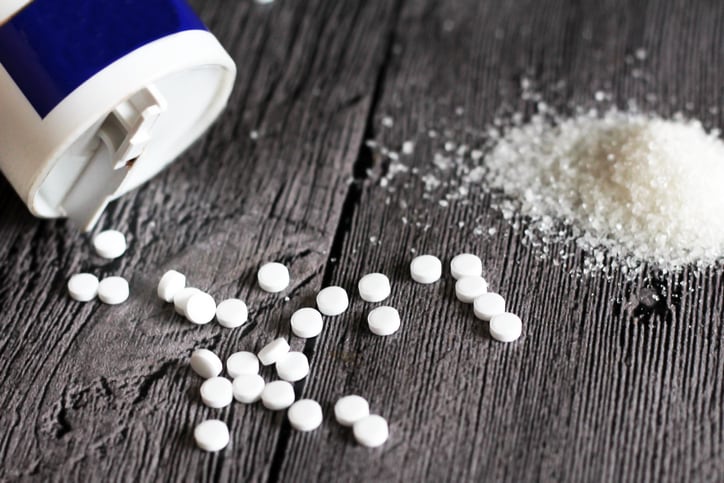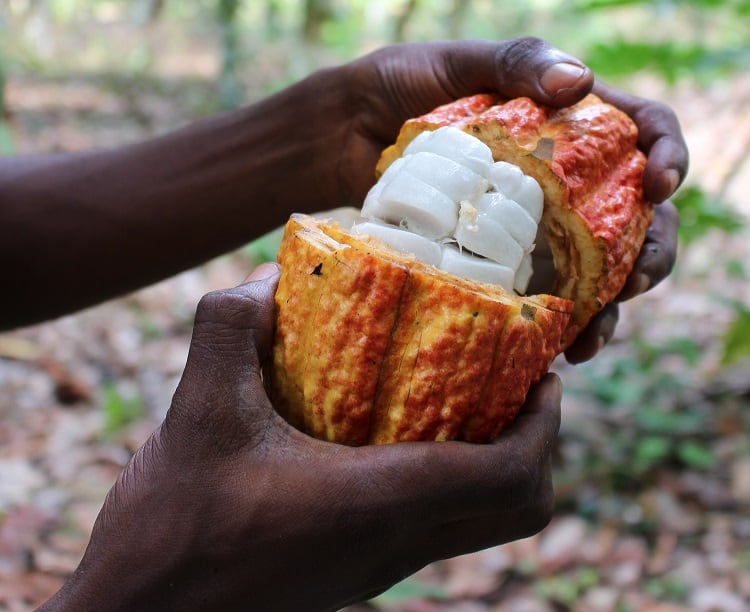Synsepalum dulcificum is a plant known for its berry that, when eaten, causes sour foods subsequently consumed to taste sweet. The ‘miracle berries’ have been used in West Africa – where the plant originates - since at least the 18th century.
“We identified the untapped potential of miracle berries as a natural sugar-reduction strategy back in 2013,” Loan Bensadon, co-founder of Baïa Food and Innovation strategy, told FoodNavigator.
Bensadon founded Baïa Food with his school friend Guillermo Milans del Bosch. A ‘shared vision’ of the importance of diet and health alongside the ‘destiny of stumbling upon the miracle berry’, led the duo to take up the ‘huge challenge’ of engaging in the EU Novel Food application process.
“When we started with this venture, all our entourage tried to make us drop this idea of engaging in a Novel Food application process,” Bensadon reflected.
“We had a very hard time raising our first investment after we ran out of personal savings. Angels don't invest in regulatory uncertainty, that is something we learned along the way. Except for impact investors who see the bigger picture, and the real benefit of such a product. Thanks to them, we were able to finance our trips to Ghana and conduct initial R&D to obtain an MVP which was the proof of concept needed to secure more funding from Spanish public institutions such as CDTI (Centre for the Development of Industrial Technology) and European Union's Horizon 2020 Research and Innovation Programs (INNOWWIDE).”
Over an eight-year period, the start-up has focused on supply chain development as well as gaining a favourable safety assessment.
“We decided to start creating a strong network of stakeholders in Ghana, and promote the sustainable cultivation of Synsepalum dulcificum, to have big volumes of raw material for a future authorisation.”
A big step towards that authorisation came on Jun 11 2021 when EFSA gave a favourable opinion of the ingredient.
EFSA’s panel on Nutrition, Novel Foods and Food Allergens concluded: “The fruits have a documented history of consumption in Africa and products thereof can be found in different markets worldwide. Information on the production process and the composition of the NF is sufficient and does not raise safety concerns.”
Bensadon described the news as a ‘milestone’ in the company’s development plans.
“It is proof that a small start-up with big dreams can accomplish great goals against all odds. It is the end of a phase in our roadmap, which has focused on overcoming the regulatory barriers and gaining market exclusivity, and the beginning of a new commercial phase, which will start the day when the Novel Food authorisation will be published in the Official Journal of the European Union a few months from now.”
Sourcing and processing: ‘We have several trade secrets’
Baïa Food has developed a proprietary processing method where the berries, sourced from smallholder farms in Ghana, are ‘monitored and closely controlled all across the supply chain’.
The processing is conducted in Ghana and in Europe, under what Bensadon describes as ‘the highest quality and safety standards’ – including IFS, BRC, GMP. “Freeze-drying is a very important part of the manufacturing process,” Bensadon hinted, noting that the start-up has ‘several trade secrets’ throughout the entire value chain.
“Sustainability is a key part of the production process. We produce and source our fruits in the country where the botanical species originated. All our berries are organic, and no pesticides are used in the production. We promote multi-cropping cultivation methods, planting the shrubs in combination with other crops such as coconut, papaya or mango trees in order to foster biodiversity in the area.
“Our own farms are designed in agroforestry systems, with the highest sustainability standards. We are working with the government of Ghana to comply with the provisions of the Nagoya Protocol and the Access and Benefit Sharing (ABS) initiative to share part of our benefits with local communities and promote rural development while increasing food security. We have the support of the GIZ, a German cooperation agency. Our fruit processing facilities use solar energy and biogas and are zero-residue.”
Health benefits and uses
Baïa Food is upbeat about the health-boosting potential of these so-called ‘miracle fruits’, which it says are high in antioxidants.
The key to their ability to modify perception of sweet tastes is miraculin, the food entrepreneur told us.
“Miraculin, the bioactive glycoprotein found in the pulp of the berries, is responsible for the taste-modifying effect. It is an innovative dietary tool that allows the consumer to reduce the amount of sugar and artificial sweeteners, outperform in their adherence to keto and low-carb diets, and introduce new sources of foods without sacrificing good taste.
“The sweetness elicited by miraculin is one of the most similar to table sugar and that is the real benefit. After consuming the novel food, eating plain yogurt or sipping in kombucha is much tastier for example,” Bensadon elaborated.
The start-up’s proprietary process is also key to delivering a high-quality ingredient. “The quantity of miraculin in DMB is quantified and standardized with a proprietary method. There is no other product on the market capable of modifying the perception of taste in the whole healthy adult population,” the co-founder claimed.
The DMB ingredient has been approved to be used in or as a food supplement. To be effective it has to be dissolved on the tongue before consuming any acidic food or beverage as miraculin must bind first to the sweet receptors.
Baïa Food has developed orally dissolving dosage forms that act directly on the taste buds such as fast-melt tablets. The sour masking and sweetness enhancing effect starts immediately after taking a single dose of DMB.
While the current EFSA opinion focuses on the use of DMB as a supplement, the company is exploring further uses in food formulation.
“As of today… the novel food will be used as or in food supplement. Thus, the dosage forms used to deliver miraculin are oral liquid, solid (ODTs, Lozanges, powder, granules, etc) and semisolid (gels). At this stage, and due to this regulatory classification it cannot be used in coatings or in foods, but we are already investing in R&D to overcome the technological challenge to formulate and deliver miraculin effectively while being mixed on food or used as coating. Also, we are investigating new applications in the health area, and will build strong scientific evidence around those benefits.”




